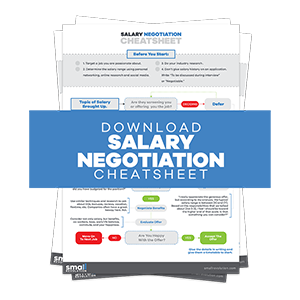Every profession has its demons.
The worst nightmare for a virtual assistant is to get a client who either refuses to pay or delays payments.
At some point in your virtual assistant career, you will have to deal with late payers. Fortunately, there are steps you can take to help you mitigate the damage done by late payers.
How to Prevent Delayed Payments
Most people are embarrassed to talk about money.
If you are one of these people, you need to get this embarrassment out of your system because it can lead to a serious financial loss.
You need to make the client understand your payment terms in your virtual assistant contract from the word go.
Verify that the client understands your terms and conditions before you start working for them.
Ensure that your terms and conditions are clearly indicated on your invoices to make it easy for your clients to pay for the services you have rendered. If you have clear communications with your client, you will minimise late payments.
Below are some of the steps that you can take to prevent delayed payments;
Have a Payment Policy
Even before you apply for a virtual assistant position with a client, you should already know how much you want to be paid. Put your payment terms in writing in a contract document. Clients usually note the hesitation when they ask how much you need to be paid for your services.
Have a Downpayment Policy
Since hiring a VA online give the clients some anonymity, they become vulnerable to nonpayment.
Ask a downpayment to get rid of bad clients that never intended to pay you. You can, for example ask for a 25% down payment on a project, with the remaining 75% payable upon project handover.
Make it Easy for Clients to Pay
Remove the barriers that prevent clients to make prompt payments. PayPal is one of the most popular ways to get paid as a VA because it is easy to use.
Alternatively, you can accept credit cards but you will incur withdrawal fees.
Remember that clients will not pay you until you invoice them. Whichever book keeping system you are using, ensure that it have an easy way of invoicing the clients.
Have a Credit Limit Policy
If your payment is delayed by 90 days, you are likely to lose as much as 52% of your receivables value.
You can for example say; “If the outstanding bill is more than $200, I’ll be unable to move on with the project”.
Such a simple clause on your contract can protect you from late payments. If a clients want you to start on a new project, they will hurry to pay you all the outstanding bills.
Incentivise Early Payment
You can, for example, give a $10 discount for all the bills settled before their due date. Alternatively, you can have the incentive staggered such that;
- clients that pay within 4 days of the invoice date get 10% discount
- clients that pay within 10 days of the invoice date get 5% discount
- e.t.c.
If you make clients aware of this clause, they might even prioritise paying you over their other bills.
Have a Late Payment Penalty
People are afraid of accruing more debt than they already have. You can put a clause in your contract that for every week of unpaid bills, the debt attracts an interest of 2%.
A late payment fee will ensure that you don’t waste precious business hours chasing clients that owe you.
Verbal Explanation of Terms and Conditions
Once you have emailed the client your terms and conditions regarding payments, you need to make sure that they understand through verbal explanations.
Invoice Every Two Weeks
Invoice your new client every two weeks to reduce the impact of loss should the client refuse to pay.
Regular Communication
Communicate frequently with the client to ensure that you have both agreed on the budget and the timeline of every new project.
Remember that the client know how much they want to spend on a particular project and you also know how much you want to be paid. It is important to know where everybody stands.
Include the Payment Terms on the Invoice
Every time you send your payment instructions, ensure that you have included the terms of payment on the invoice.
Send Payment Reminders
It is prudent to send a reminder to the client a day before the invoice becomes due. You should also inform the customer that the invoice is overdue one day after they have breached your terms of payment.
Send your formal regular reminder one week before the payment is overdue. Calls are good and easy to use to remind a customer of what they owe you, but an email is better because it leaves an audit trail that can be used in case there is a dispute.
You should send a second formal reminder after a week and a final demand two weeks later informing them that you might start legal proceedings for late payment. Make sure that this is not a hollow threat.
Before you threaten legal proceedings, ensure that you have discussed the payment terms with the client. Most likely than not, the accountant pays on a specific date and you only need to align your invoice date with the payment system in their company.
Do You Need to Take Legal Action?
Sometimes the amount in question is too little to take a legal action against a client. If that is the case, learn from the experience. If you feel that you need to teach the client a lesson, you may have a law firm send demand letters.
The demand letters will include details such as;
- The identity of the defaulting customer
- The amount they owe you
- The date when the amount became due
- The date by which they should pay the amount due if they are to avoid legal proceedings
In Australia, law firms can send payment demand letters of amounts as little as $20.
Feedback Mechanism
Upwork has a feedback mechanism that a virtual assistant can use to rate and give feedback about their experience with a client. Make sure you leave a true reflection of your experience so that other virtual assistants can know what to expect.
If the platform you use to get clients have this feedback mechanism, use it.
Upwork has an appeals mechanism that they use to review feedback and rating when users feel they got a bad review unjustly. Unfortunately, if you appeal the rating, you forfeit the right to have the work experience displayed on your profile.



1 Comment
excellent post, very informative. I wonder why the other experts of this sector don’t notice this. You should continue your writing. I’m sure, you’ve a great readers’ base already!